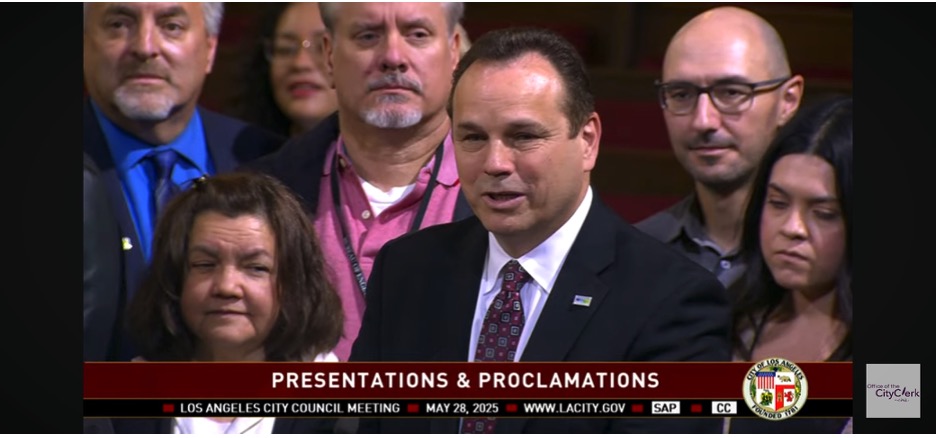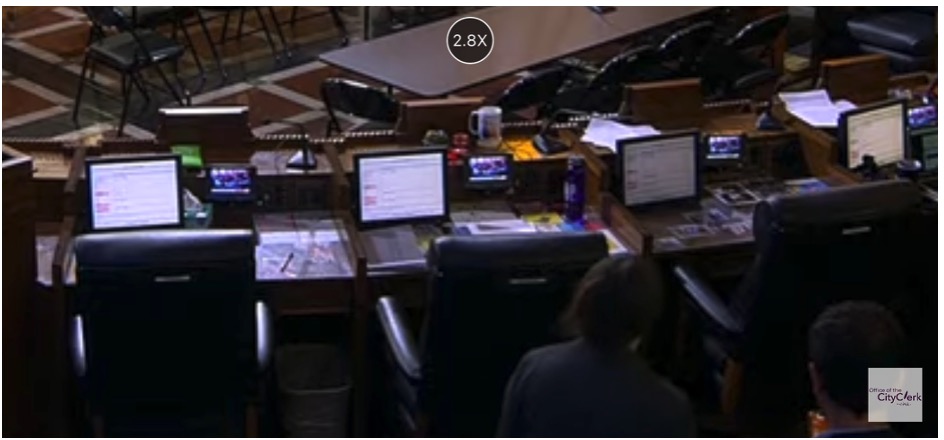Comments
ERIC PREVEN’S NOTEBOOK - Smart Speaker: We make mistakes, I just need to recover a moment, because that was a gut punch. I never get called Joel, I always get Eric Preven, occasionally Smart speaker. This case is Becerra versus California, there's the probation case. And that's the results from last week. This week, we're going in on U.S.A. versus County of L.A., Johnson. This is a dark day. What a beautiful celebration! I want to thank Sara Sadhwani for her work on Measure G and for being recognized by Horvath today. And also for co-writing an op-ed. This shows that the County is serious about conflict and bringing in a student of Professor Sadhwani is also a great opportunity to have a little more power on the commission or task force.
Torrance Throwdown: The Reckoning
Let the record reflect: the Board voted aye. The Torrance Homekey project, the controversial hotel conversion, and Supervisor Hahn got her acronyms tangled but clarified: this is not a shelter. This is permanent housing. As in leases, case managers, and no loitering. Also dog runs. (Seriously, they’re big on dog runs.)
Supervisor Hahn, ever the civic tightrope walker, tried to thread the needle, acknowledging the outrage, validating the fears, and defending the urgency. The key tension? The May 30th state deadline. Miss it, and poof—$142 million in Homekey funds vanish like transparency in a Metro audit. It passed 3-0 with Supervisor Horvath recusing. So after four hours of torchlit testimony, what did we learn?
Start here: Homekey ain’t Roomkey.
Torrance’s mayor and council had pleaded: slow down, collaborate, pick another spot. But the County? On a clock. One councilmember suggested restricting the site to seniors or veterans. Hahn liked the idea. The County politely said: Not quite, but sure, we’ll prioritize.”
Then came the damage control: Weingart Center—yes, that Weingart—promised amenities, security, lighting, landscaping. No loitering. No blight. Not even a vibe. “You won’t know it’s a homeless project,” they said, pointing proudly to their other buildings, like the one across from a Porsche dealership. Because if you can house the unhoused near luxury vehicles,surely Torrance can survive a few formerly unhoused neighbors near a mall.
Supervisor Mitchell piped in to remind everyone this item involved six sites, not just Torrance. But no other district turned out like Torrance—they filled the hearing with a vengeance.
The vote passed, but the process? Still smoldering.
The word of the day was “collaboration.” As in: there wasn’t enough of it. And now everyone’s promising there will be more—after the vote.
“The Puppet Called In Sick”

Ted Allen jumps ship.
We began today’s proceedings with a top tier touching segment honoring Ted and Julie Allen—two senior city staffers retiring after a combined 64 years of keeping Los Angeles upright, damp, and mostly intact.. and their impeccable timing in getting the hell out before it all implodes.
Ted built dashboards. Julie rebuilt Echo Park Lake. But the real infrastructure miracle? They were married. On the QT. The whole time. At the top levels of two interwoven departments: Engineering and Sanitation.
Cue gasps from the horseshoe, John Lee—“I had no idea!” Nithya Raman offered deep gratitude, Imelda Padilla pushed like an agent for a memoir, and McOsker suggested a working title: Engineers In Love: Our Secret Marriage.
It was sweet. It was revealing. It was… maybe a civil service violation?
But hey, they didn’t supervise each other. They just shaped billions in city contracts from opposite sides of a shared dinner table. Why complicate things with disclosures?
GROAT: Sir, your time has expired.
Smart Speaker: Thank you, Groat. I’ll yield the remainder of my time to myself.
Kudos to Stacey Segarra-Bollinger, who sang.
Not a protest. Not a rant. A song.
Blumenfield blinked.
It should come as no surprise—she’s on the short list to play herself in the upcoming musical Public Comment, coming soon from… REDACTED.
GROAT: Sir, your time has expired.
Smart Speaker: Groat, do you have a hobby?
Anyway, time for Item 24. Closed Session. I’ll be back. Easy does it in there.

What could have been?
Your Honor:
Smart: Speaker: If it pleases anyone, Spindler made strong points about his concerns related to the City of Los Angeles’ increasingly routine reliance on Judgment Obligation Bonds—an arrangement by which the municipal body retrofits its own misconduct into bonded debt, offloading legal liability onto future taxpayers with the bureaucratic flourish of a budgetary line item.
Spindler raises a salient constitutional question: At what point does municipal impunity, lubricated by bond measures, become a dereliction of democratic duty?
He begins, with clarity, by noting that these bonds are deployed not for capital improvements or essential services, but to settle civil rights violations and misconduct cases. He references a recent incident involving a Councilmember—Monica Rodriguez—whose public remarks about a police officer resulted in yet another legal judgment. The city, rather than accept fault in any meaningful policy-corrective way, merely pays out and moves on. No admission. No reform. Just a check. And then, another bond. There was a quick reference to a Moni-cow Cunt-riguez and Spindler stuck the landing, “The City Council keeps breaking the law. That’s why we need these bonds.”

Where have all the council gone?
One could, in more formal terms, suggest a pattern has emerged: wrongdoing → lawsuit → payout → bond measure →rinse → repeat. Not financially sustainable—or legally defensible—and most certainly politically shameful.
Spindler wrapped it up by commenting on Councilmember Bob Blumenfield’s voracious appetite for these bonds. While he does not allege illegality, he implies—clearly—that such fiscal tools have become a crutch for governance rather than an instrument of accountability.
If the Court is looking for language, it might consider this:
"Where elected officials insulate themselves from the consequences of their speech and conduct by issuing bonds to finance the legal aftermath, it is not merely a matter of budgetary policy. It is a question of democratic integrity.”
With that, I’ll yield my time.
GROAT: Mr. Preven, your time has expired.
Smart Speaker: I already yielded it, Groat. You are out of order.
(Eric Preven is a Studio City-based TV writer-producer, award-winning journalist, and longtime community activist who won two landmark open government cases in California.)









